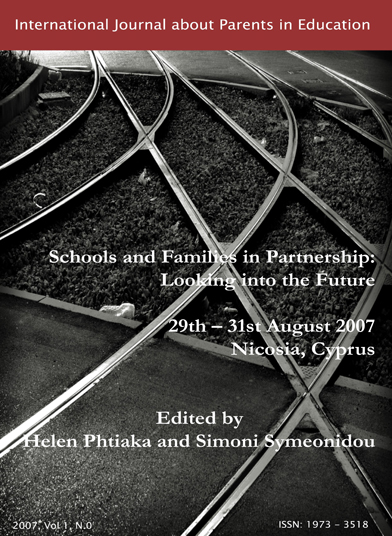Strengthening home-school links through family literacy programmes: a comparative European case study
DOI:
https://doi.org/10.54195/ijpe.18276Abstract
Family literacy programmes have become increasingly popular, particularly in England since the implementation of the Skills for Life (SfL) agenda (DfEE, 2001). Programmes are perceived by policy makers as a means of addressing low levels of literacy and numeracy in families who are viewed as underachieving, economically and socially, (Atkin, Rose and Shier, 2005). They can also be used to develop links between the home and school fields, (Bourdieu, 1977) and to re-engage adults who have a habitus (Bourdieu, 1993) of none-involvement with formal learning. Drawing on Bourdieu’s theoretical concepts of habitus and field this paper looks at family literacy programmes in England, Ireland and Malta and the role, if any, of such programmes in strengthening links between the home and school. Based on the findings of a European comparative doctoral study, research found that the fundamental difference between the three case study areas was the absence of children participating in family literacy programmes in Ireland compared to England and Malta largely due to the fact that in Ireland programmes did not involve schools. This paper explores reasons why programmes in Ireland are not delivered in conjunction with schools and the impact collaboration has on home and school relationships.Downloads
Published
2023-11-11
Issue
Section
Articles
How to Cite
Strengthening home-school links through family literacy programmes: a comparative European case study. (2023). International Journal about Parents in Education, 1(1). https://doi.org/10.54195/ijpe.18276





